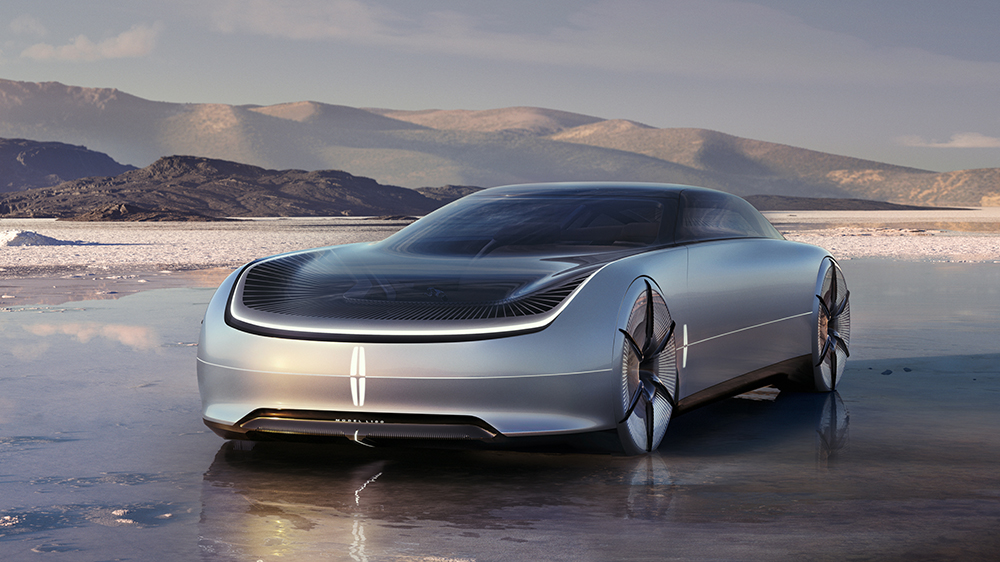In celebration of the brand’s 100th anniversary, Lincoln debuted the L100 concept car at Pebble Beach at the kick-off of Monterey car week . The imposing concept with complex, reverse-hinged doors and lifting roof takes Lincoln’s “Quiet Flight” design language to the next level with a combination of digital technology and tactile, luxurious touches. “In the ‘50s we were the quintessential luxury brand, all the glamour and romance.
The challenge was how do we take this into the digital age,” said exterior design manager Xitij Mistry. Lincoln With alluring proportions and sleek, aerodynamic lines, the L100 sits low to the ground and features massive wheels, whose “spokes” feature 3,000 LED lights on each wheel and can be customized with a variety of patterns. “It’s the longest, widest vehicle we have ever done,” says Kemal Curic, Lincoln’s global design director.
“Lincoln is a brand of occasion. We want you to arrive in style. ” As with the Star concept Lincoln unveiled earlier this month, designers began designing the L100 from the inside first.
The floor consists of massive OLED panels which display a variety of moving patterns. Interior seating is flexible and can be configured in different ways, with lounge-like rear seats that recline to let passengers relax. Front seats can swivel around to make socializing easier when the car is driving in autonomous mode.
Soft, suede-like fabric is animal-free and is made with recycled content. Lincoln Vast amounts of glass, from the canopy roof to the windows, allow in lots of natural light and allow for unobstructed views of the outside. “One of the things we wanted to be is in touch with our surroundings,” Curic said.
Also to that end, there are very few controls and notably, no giant display screen found in most concept cars today. The front hood area, which Curic calls a jewel box, is translucent and creates a feeling of transparency and light. Visible beneath is a crystal greyhound hood ornament, a symbol used by Edsel Ford in the 1920s, representing speed and elegance.
Lincoln Although the L100 is designed to be autonomous, designers wanted passengers to be able to control the car manually. In lieu of a wheel, they created a crystal sculpture mounted to the center console that moves similarly to a chess piece. It was inspired by one of the designers watching a child play with a toy car.
“That back and forth movement is the most primitive, intuitive way we move things,” Kemal says. The central location also means passengers on either side of the cabin can take control. Lighting plays a key role in the L100 concept, from the illuminated badge in the front to the light that runs around the entire car, which uses GPS to follow the owner when he or she walks around the car with a connected mobile phone.
“In a future where we have no grilles, it’s all about the badging and all about light,” says Curic. Lincoln Although this is a concept, the L100, as well as the Star concept, preview design cues that will appear on the next generation of Lincoln production vehicles as the company transitions to electrification, with the shift to full EV promised by 2030. “We think this car fulfills our tenets of beauty, human, luxury and gliding,” says Curic.
“We wanted to bring back the romance of travel and make it enjoyable again. ”.
From: robbreport
URL: https://robbreport.com/motors/cars/lincoln-l100-concept-1234741125/



